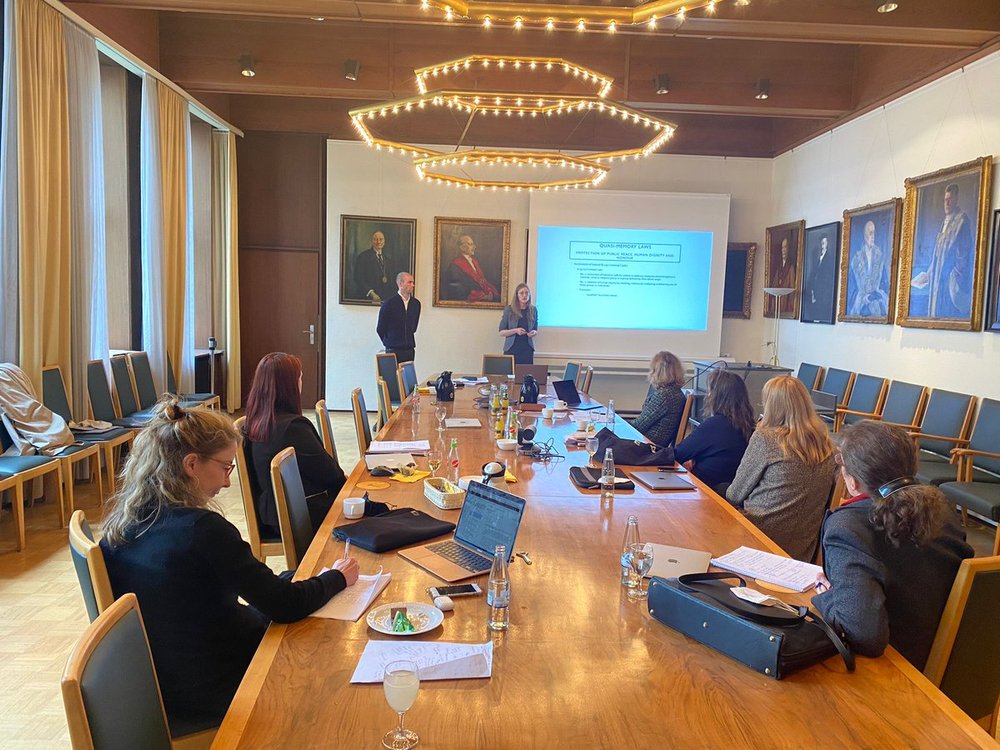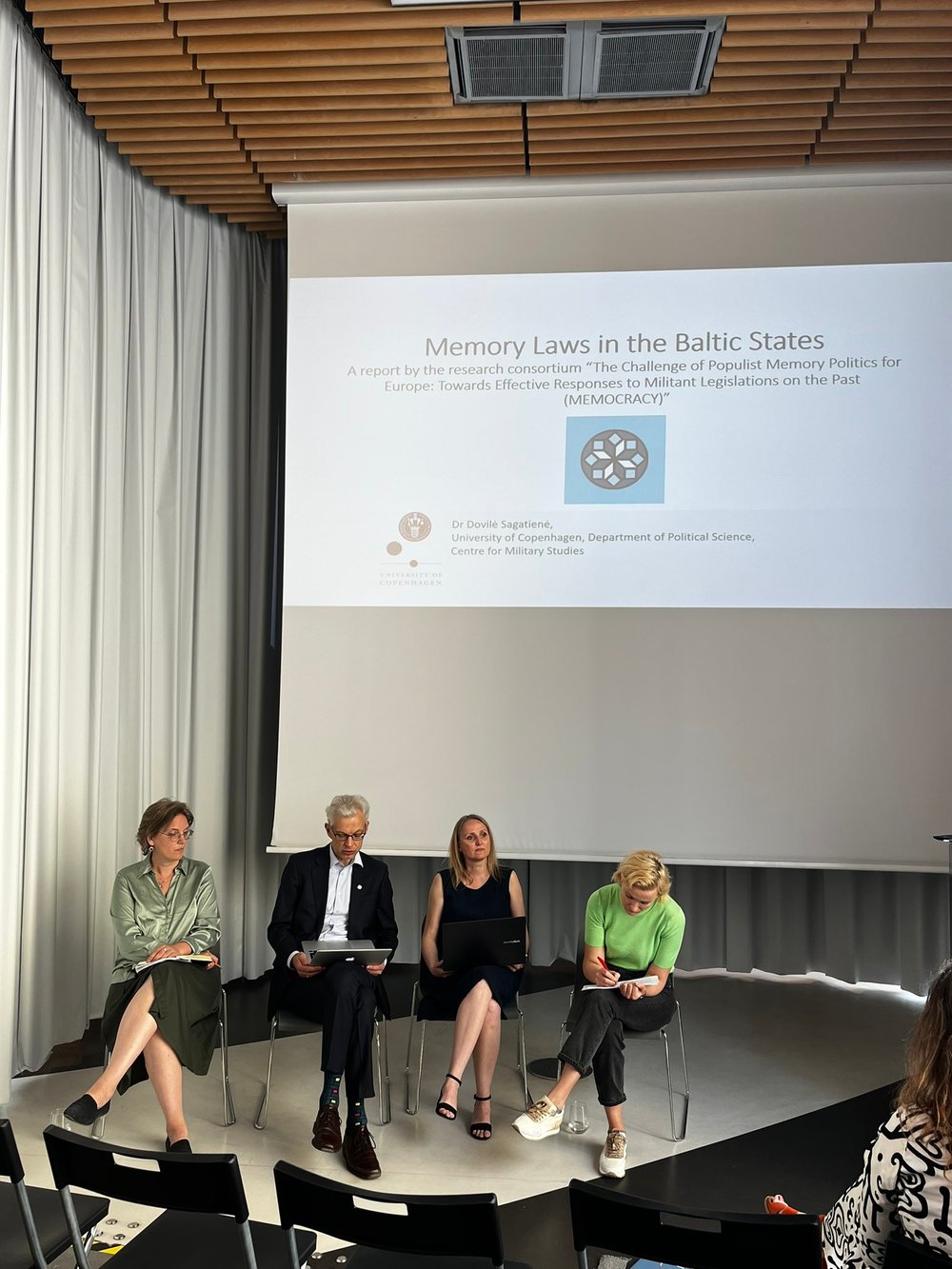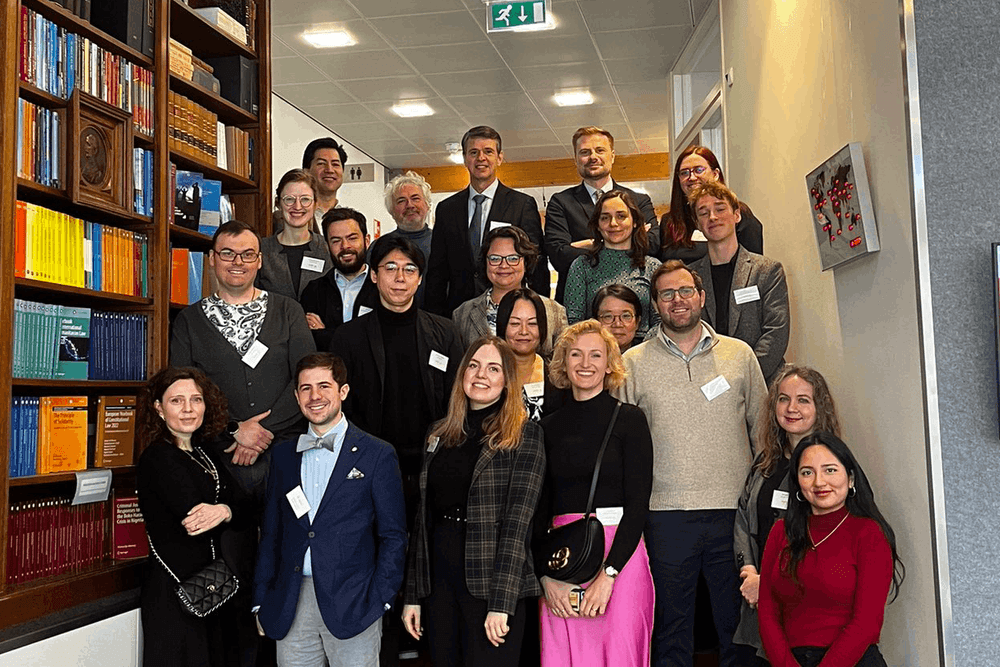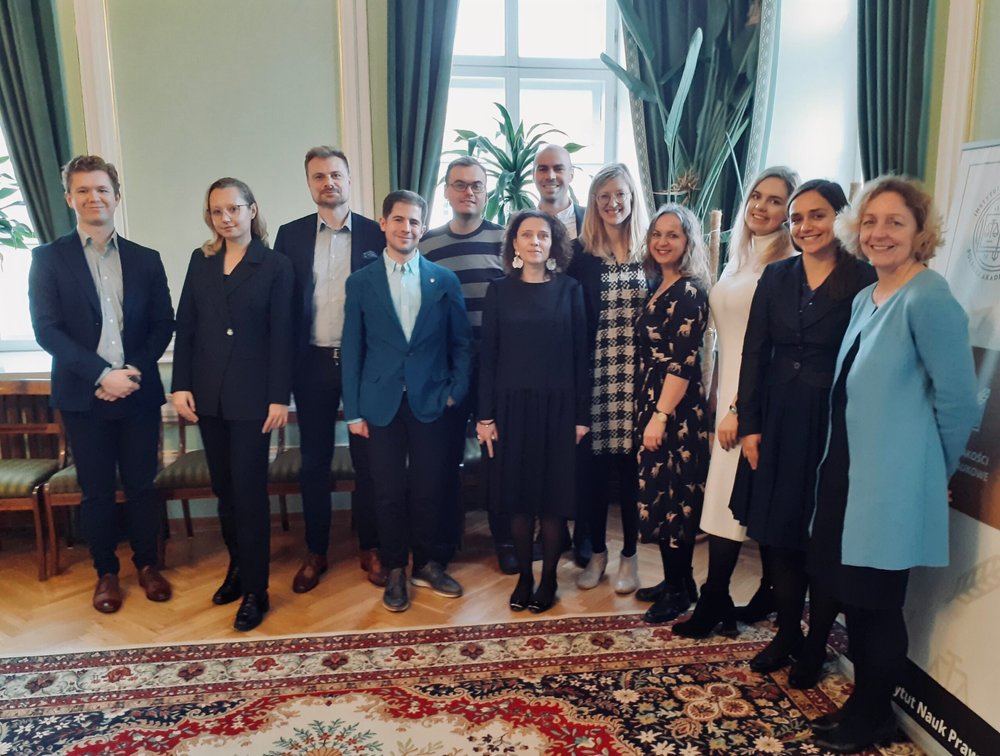
Workshop: discussing the draft report on memory laws in Germany
MEMOCRACY Principal Investigators, early career researchers and invited guests discussed a draft report on memory laws in Germany, prepared by Dr. Paula Fischer, the post-doctoral researcher at the MEMOCRACY team at the University of Cologne, and Simon Messing, a P.h.D. candidate at the University of Cologne. The invited experts Prof. Anna-Bettina Kaiser, Dr. Reut Yael Paz and Dr. Stefanie Rauch contributed insightful comment.
The workshop was followed by the first public event of MEMOCRACY, which centered on Putin’s abuse of history in his obscure reasoning for invasion of Ukraine.
In his escalating speech of 21 February 2022, three days before the Russian invasion of Ukraine, President Putin made clear: In his view, Ukraine is “an inalienable part of [Russia’s] own history, cultural and spiritual space” that needs to be “de-nazified” which gives Russia the right to subjugate it. This narrative, a complete distortion of historical facts, is central to Putin’s claim that its brutal drive for expansion and restoration of the Soviet Union is politically and morally justified. If the rewriting of history, including by legal means, has been part of many States’ foreign strategy for a long time, the weight given to an official narrative of the past and the effects created have rarely been so huge. The questions arising at this beginning of a new era of international relations are numerous: Which factors have contributed to the fact that such a detachment from historical reality could be formulated and are believed by some today; what does it mean – for Ukraine, its neighbors and beyond – when memory governance is no longer limited to serving ontological security interests but openly pursues expansionist purposes; and what can the European States do to preserve not only their past but also their core values and an international order that is based on law?
These questions among others were discussed by the four panelists: Dr. Uladzilau Belavusau (T.M.C. Asser Institute, The Hague, University of Amsterdam), Dr. Aleksandra Gliszczyńska-Grabias (Institute of Legal Studies, Polish Academy of Sciences), Prof. Dr. Fabian Klose (Chair for International History and Historical Peace and Conflict Research, University of Cologne) and Dr. Maria Mälksoo (Centre for Military Studies, University of Copenhagen). The panel was chaired by Prof. Dr. DDr. h.c. Angelika Nußberger M.A. (Academy for European Human Rights Protection, University of Cologne).


